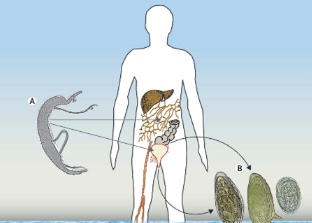The program on schistosomiasis awareness, prevention, and management needs to be strengthened as cases are still recorded in 16 barangays of Tacloban City, in the Province of Leyte.
Sixteen city barangays in Tacloban have recorded endemic schistosomiasis.
These are Barangays 3 and 3-A Nulatula, Barangays 77, 78, 79, 80, 81, 82 of Marasbaras; Barangay 84 Manlurip San Jose, Barangay 95 and 95-A Caibaan, Barangay 96 Calanipawan, Barangay 100 San Roque, Barangay 103-A Paglaum, Barangay 107 Sta. Elena, and Barangay 108 Tagpuro, according to the Tacloban City Information Office in coordination with the Tacloban City Health Office.
Endemic schistosomiasis means the disease is “occurring regularly within an area or community.”
According to Mel Maravilles, nurse coordinator for communicable diseases, of the Tacloban City Health Office, stomachache, headache, nausea and vomiting, and fever are among the symptoms.
Presence of Schistosoma worms or blood flukes in the human body is potentially fatal but there is available treatment if detected early through regular medical check-up, Maravilles pointed out.
He said that persons who have experienced the symptoms should consult the nearest Health Center or the City Health Office, or go through an examination of the blood.
He added that free medicines are provided to the patient, but most residents shy away from a medical check-up because of the social stigma linked to the illness.He also cited of residents who are too preoccupied with their domestic chores, livelihood activities, and other concerns that they take the program for granted.
Thus, the program needs to be strengthened, Maravilles said.
Maravilles stressed that infected persons should not be ashamed or be afraid about seeking medical help.
Profiles of patients are always kept in private, Maravilles added.
He further said that patients should not wait for conditions to go severe, as the parasitic worms might reach the human brain which could be fatal.
PARASITE PROFILE
According to the National Nutrition Council, Schistosomiasis is caused by the parasite Schistosoma japonicum also known as blood fluke.
The parasite remains to be endemic in the Philippines especially in the Samar and Leyte provinces and Negros Occidental in the Visayas.
The parasites are said to be stored in snails that live in waters, rice fields, or rivers.
Small parasites leave the snail and travel in water to infect humans by entering broken skin such as wounds.
(Info courtesy: Tacloban City Information Office and National Nutrition Council)




